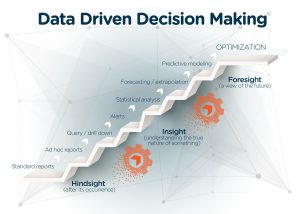
Introduction:
In the dynamic landscape of Trends in Higher Education 2024, staying ahead of emerging trends is paramount for institutions, educators, and students alike. The year 2024 promises to be a pivotal time, marked by transformative shifts in educational practices and paradigms. As we delve into the trends shaping higher education’s future, we unveil a tapestry of innovation, adaptation, and opportunity. In this section, we delve into the seven key trends driving the educational evolution in 2024, each heralding a new era of learning and development.
Holistic Learning Experiences: Redefining Pedagogy:
Trends in Higher Education 2024 in an era defined by interdisciplinary collaboration and holistic approaches, educational institutions are reimagining pedagogical frameworks. Embracing diverse learning modalities, from experiential learning to project-based assessments, institutions strive to foster critical thinking, creativity, and adaptability among students.
Digital Transformation: Embracing Technological Advancements:

Trends in Higher Education 2024 the digital revolution continues to reshape higher education, transcending traditional boundaries and opening new frontiers of learning. From AI-driven personalized learning platforms to immersive virtual classrooms, technology permeates every facet of the educational experience, enhancing accessibility, engagement, and outcomes.
Lifelong Learning Paradigm: Cultivating Continuous Growth:
Trends in Higher Education2024 in an age of rapid change and disruption, the concept of lifelong learning emerges as a cornerstone of educational evolution. Institutions pivot towards flexible, modularized programs tailored to meet the evolving needs of learners across their lifespan, fostering a culture of continuous growth and skill development.
Globalization and Diversity: Embracing Cultural Fluency:
Trends in Higher Education 2024 as borders blur and interconnectedness deepens, higher education embraces diversity as a catalyst for innovation and understanding. Institutions prioritize global perspectives, cross-cultural competence, and inclusive practices, preparing students to thrive in an interconnected world marked by diversity and complexity.
Sustainability and Social Responsibility: Fostering Ethical Leadership:
Trends in Higher Education 2024 amid mounting environmental challenges and social inequities, higher education assumes a pivotal role in cultivating ethical leadership and sustainable practices. From integrating sustainability into curricula to spearheading community engagement initiatives, institutions champion social responsibility, equipping students with the knowledge and skills to effect positive change in society.
Data Driven Decision Making:

Trends in Higher Education 2024 in an age of information abundance, data analytics emerges as a powerful tool for informing strategic decisions and enhancing student success. Institutions leverage predictive analytics, learning analytics, and big data methodologies to gain actionable insights into student performance, engagement trends, and learning outcomes, driving continuous improvement and innovation.
Conclusion
In conclusion trends in Higher Education 2024 recognizing the diverse needs and aspirations of learners, higher education embraces flexible credentialing pathways as a means of democratizing access to education. From micro-credentials to stackable certificates, institutions offer modularized learning opportunities that empower learners to chart personalized educational journeys tailored to their goals and circumstances. Challenges include ensuring accreditation standards, maintaining program quality, and facilitating seamless credit transferability across diverse educational pathways.
FAQs
Q: How will these trends impact traditional classroom settings?
Traditional classrooms are evolving to incorporate technology-enhanced learning tools and experiential learning approaches, fostering a more interactive and engaging educational experience.
Q: What role does adaptive learning play in personalized education?
Adaptive learning leverages AI algorithms to tailor educational content and pacing to individual learner needs, optimizing comprehension and retention.
Q: How can institutions promote diversity and inclusion on campus?
Institutions can foster diversity and inclusion through targeted recruitment efforts, inclusive curriculum design, and support services that cater to diverse student populations.
Q: What are the benefits of lifelong learning initiatives for professionals?
Lifelong learning initiatives enable professionals to stay abreast of industry trends, acquire new skills, and adapt to evolving job market demands, enhancing career prospects and employability.
Q: How can educational institutions leverage data analytics to support student success?
By analyzing student data, institutions can identify at-risk students, personalize interventions, and optimize educational resources to enhance student retention and academic achievement.










